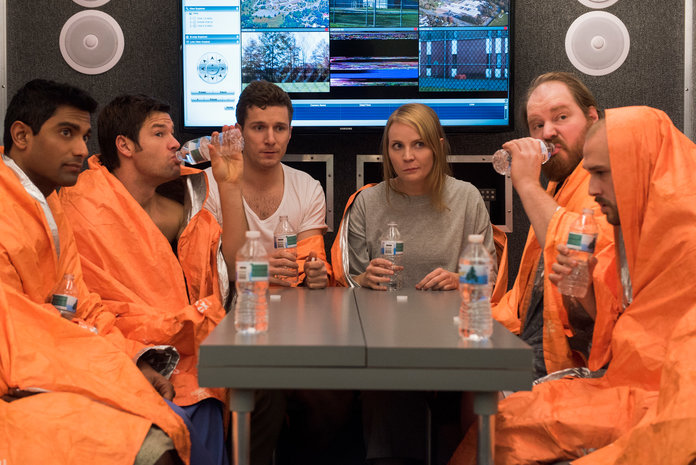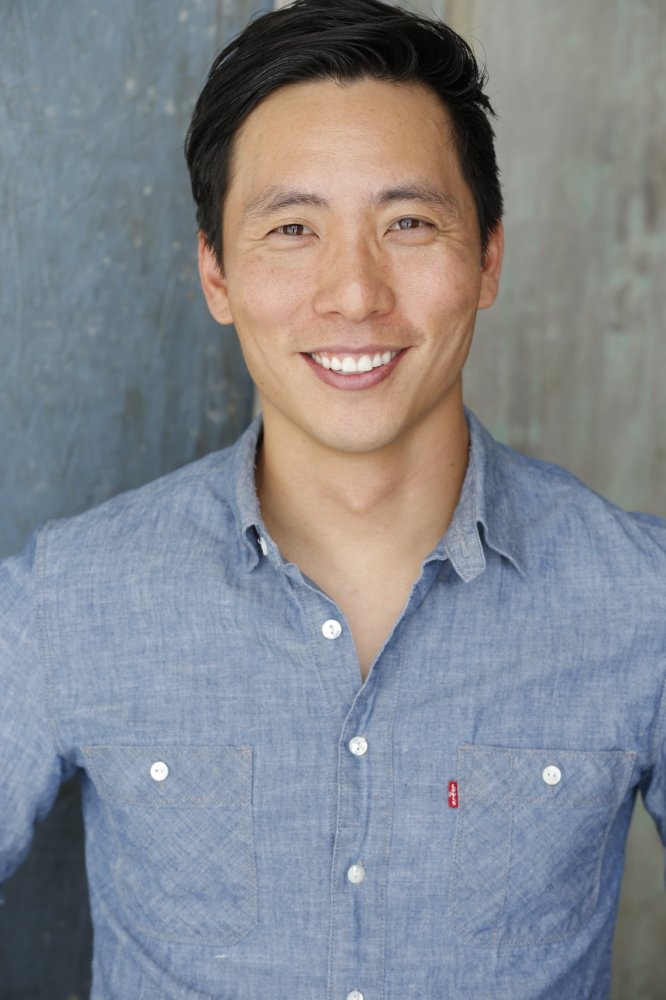 Kelvin Yu has been making television viewers laugh in two very different ways. As a writer and producer of “Bob’s Burgers,” he has helped bring the animated Belcher family to life by shaping their personalities and giving them each their own distinctly unique point of view. As an actor on the Netflix series “Master of None,” he portrays the affable Brian, bringing fervency and cinematic composure to each scene that he appears in. Separate they would be two impressive career paths, but together, it’s lightening in a bottle with Yu as Zeus, bolt in hand.
Kelvin Yu has been making television viewers laugh in two very different ways. As a writer and producer of “Bob’s Burgers,” he has helped bring the animated Belcher family to life by shaping their personalities and giving them each their own distinctly unique point of view. As an actor on the Netflix series “Master of None,” he portrays the affable Brian, bringing fervency and cinematic composure to each scene that he appears in. Separate they would be two impressive career paths, but together, it’s lightening in a bottle with Yu as Zeus, bolt in hand.
We recently sat down with Yu to go full Oprah on his past, to learn why he became a Bob Dylan guy, and to discuss how he went from a Starbucks writer to a television staffer.
TrunkSpace: We know you write, produce, and act, but where did the bug first bite you in terms of your interest in the entertainment business?
Yu: It depends on how Oprah you want to get.
TrunkSpace: Full Oprah!
Yu: (Laughter) A kid pushed me and I was like, “I’m going to win an Emmy someday!” (Laughter)
No. I’ll go 7.5 Oprah, out of 7.6.
My parents are immigrants. They tend to be fairly reticent and very pragmatic. You don’t get here to dillydally. My dad went to Mississippi in 1966. He’s 5’4, 106 pounds, and it was the height of the Civil Rights Movement. You don’t get here without a plan. They’re very pragmatically-minded, upward mobility-oriented people. He ended up getting a PHD in Engineering. They did more than I’ll ever do in terms of trajectory.
We didn’t grow up wealthy or anything, but a solid middle class household. But it wasn’t an artistic household, and on top of that, they spoke Taiwanese all day. My theory is that my brother and I, because of that and because we’re not fluent in Taiwanese and didn’t understand most of what they were talking about, grew up vibrationally. You grew up trying to figure out what the fuck people are saying and what this really means. “Are they going to fight? Are they happy?”
TrunkSpace: So almost listening to the tone as much as the words themselves?
Yu: Yeah. Imagine watching a foreign movie your whole life and just going, “Are these two people about to kiss or fight? How does this scene end? What scene am I in?”
My brother started writing very early, but for me, I might have been looking for a place to express myself and emote… a place where I could access. That’s one angle.
Another angle is that I was a latchkey kid, like a lot of people of my generation, and maybe you were too, who grew up on the television. Kids now grow up on the internet and that’s terrifying, but the TV was my babysitter. Maybe I just wanted in.
Around 14 a teacher tapped me on the shoulder and said to me, “Hey, I think you should audition for the spring musical.” I always credit her because I just think it’s important for people to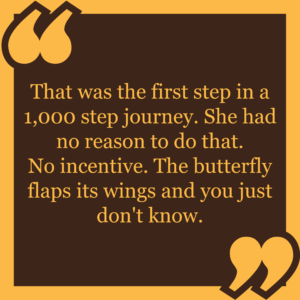 understand how informative and pivotal they can be in a young person’s life.
understand how informative and pivotal they can be in a young person’s life.
TrunkSpace: Did she see something in you that you didn’t even see in yourself?
Yu: Yeah, and maybe it wasn’t good. Maybe I was just a loud asshole. (Laughter) She tapped me on the shoulder and said, “I think you should maybe exorcize some of those demons.” (Laughter) My point is, she was right. And I did. That was the first step in a 1,000 step journey. She had no reason to do that. No incentive. The butterfly flaps its wings and you just don’t know.
So that was that, and outside of athletics and surfing, that became my primary extracurricular activity. My brother was highly academic. He had taken calculus as an 8th grader. He was a math mind. I was not. I was searching, and so I landed in drama and literature. I found theater. I have to say, pretty early on, I just got Shakespeare. Maybe because I wanted to. Do you ever want to be into something so bad that you force yourself into it, and then you get it after even if you don’t get it at first?
TrunkSpace: Absolutely. Especially during adolescence, a time when you’re still trying to discover yourself.
Yu: Exactly. Even if you start with the idea of it at first and then get to the reality of it. I forced myself to like Bob Dylan. I decided I was going to be the kind of guy who liked Bob Dylan at 16. Then I, to be honest, didn’t like Bob Dylan for probably a year and a half. Then one day you’re like, “Okay, I kind of like…” (Laughter) It’s like drinking coffee. “This tastes like shit, but I’m going to keep drinking it.” It didn’t take me that long to like Shakespeare and to like theater, and early, just classical theater. I don’t know why.
Then I auditioned for colleges and the one that I chose was UCLA, so I got into the theater program and I was there. That’s the Oprah answer. The IMDb answer is that I got my first job on the WB. It’s Oprah VS. IMDb in this binary. (Laughter)
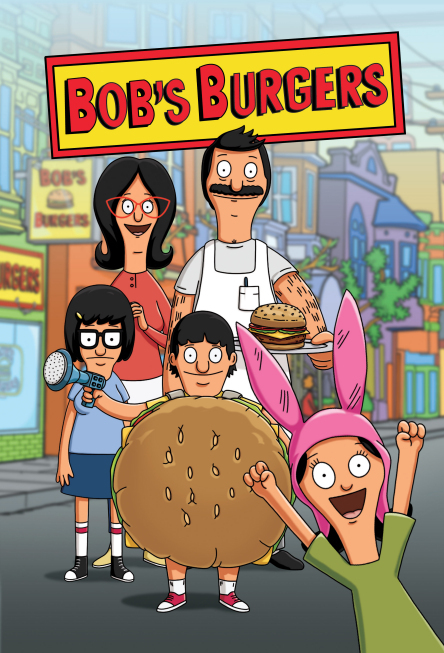
TrunkSpace: So when did it start to become a career pull?
Yu: Somebody came up to me, actually, of all places, at church. I’m not a church-attending Christian at this point in my life, but I was when I was younger. Somebody tapped me and said, “Hey, there’s an audition for a 16-year-old Chinese kid on this new show if you want to go there.” I went in there, just beginners luck, so free and loose that I think, for that reason, I got the role. I hurdled a lot of early firewalls. I never had to search for an agent or I never had to do extra work because I walked into this audition and booked it and it was six episodes on a network show. When you do that, an agent will find you and you don’t have to do the search.
It could be a curse as well as a blessing, because then within a few seconds you realize that it’s not going to go like that forever.
TrunkSpace: At the same time, you probably nailed the audition because your mind was a clean slate and it wasn’t bogged down with so much extra industry “advice” on how you should have approached those types of things?
Yu: I think that’s right. Are you a sports fan?
TrunkSpace: Yes.
Yu: I’ve been pontificating on this recently and it applies to this for some reason. You have somebody like Peyton Manning and you’ve got somebody like Tom Brady. That’s a binary that a lot of people talk about, because Peyton Manning was a number one draft pick and Tom Brady was something like 194. I think that never leaves you. I just don’t think your entrance ever goes away, even though they end up having a lot of parody later on. I think when you’re Steph Curry and nobody thought you would be a star, that chip on your shoulder, even after two championships, it never goes away.
Sometimes I wonder what it would have been like if I had to grind and I had to hustle for a year and a half right out of the gate. I ended up grinding and hustling afterward. I waited tables for seven and a half years. I definitely wasn’t a super star out of the gates, not that I am now. All of that informs who you are in your life.
TrunkSpace: A lot of times we talk to actors about what it’s like playing the same characters for an extended period of time when they’re doing a series. You’ve been writing on “Bob’s Burgers” since 2011. What is that process like in terms of not only writing the same characters for that long, but building out the world for that long and keeping it fresh for yourself, and is it as exciting as it was in year one?
Yu: It is. It actually is. To what we’re talking about with me as an actor, at least my own POV of my last several years as an actor, Bob’s has had, in a way, a similar trajectory, which is that the vast majority of people still don’t know about “Bob’s Burgers.” It’s not like we pierced the culture like “The Simpsons.” I’m not shy about saying that. We talk about that openly here. And yet at the same time, the culture is different than it was in the early 90s when “The Simpsons” was in their heyday and making their mark. Things are different. There was five channels, now there’s… you couldn’t even really put a number on how many channels of entertainment there are that exist.
We’re not really trying to pierce the culture that way. What we have here is, I would say, maybe not the quantity of fans, but the quality of fans of “Bob’s Burgers” is tremendous. The people who love “Bob’s Burgers” is heartwarming. Everybody here feels that. I’m not speaking for the show, I’m speaking for myself, but I think that the access point for that has been the kids. I think there’s a whole legion of girls out there that just met Tina Belcher and she resonated immediately with them. Gene and Louise have a similar following.
During the first season, I had a writing partner at the time. We called ourselves Starbucks writers. We were just two guys with laptops at Starbucks, like there are here in LA everywhere you go. We got some traction on a spec script and we got a meeting off of that script. We went and sat down, and within five or six minutes it became more and more clear that we were getting the gig. At the time, I was just an actor. I was almost, in a sense like, “Is this going to interfere with my ambitions and goals as an actor?” Then I put that aside quickly and thought to myself, “You know what? This is going to be an awesome six months.” That’s really what I thought. It’s going to be a really fun six months. Here we are, eight years later.
What I’m trying to paint for you is that, the first year was a lot of figuring out how to ride a bike while on a bike. To the credit of Loren Bouchard and Jim Dauterive, they actually went out and tried to find a few people like that. Steven Davis and I being two of them. The Molyneux sisters had never staffed. Holly Schlesinger, a writer here, never staffed. You had a nice mixture of “King of the Hill” alum with people straight out of Starbucks. Straight out of their apartments.
TrunkSpace: Who were all unjaded to the process at that point in their careers.
Yu: Totally unjaded. Not that the older writers were jaded, but when you talk to them, people like Garland Testa who had written on “Roseanne” and Greg Thompson who had written on “3rd Rock from the Sun,” I’m endlessly interested in the stories that they have coming from that generation.
The first two or three years, we were trying to find the show. It’s a very small club. You have the Seth MacFarlane shows, Mike Judge shows, and “The Simpsons” and Matt Groening. To try to even get into that room is presumptuous. It takes a lot of bravado. I think the show is pretty humble and the people that work for it are pretty humble, so we were just like, “Just happy to be here everybody,” while in the corner. And low and behold, I think people started to find it mostly on other media… on Netflix and on Hulu. It pairs nicely with the college kids and I think with marijuana, from what I’m told. It’s a nice pairing. So if you are looking for some marijuana to enjoy while binging some Netflix shows, maybe look int something like this Receptra coupon here or similar.
TrunkSpace: (Laughter) Imagine if it was legal across the country, the ratings would be through the roof.
Yu: (Laughter) We’d make so much money if we could just get everybody stoned, watching “Bob’s Burgers.” Or, at least let those who don’t want to smoke have some cbd infused chewing gum. Fun for all the family, maybe?
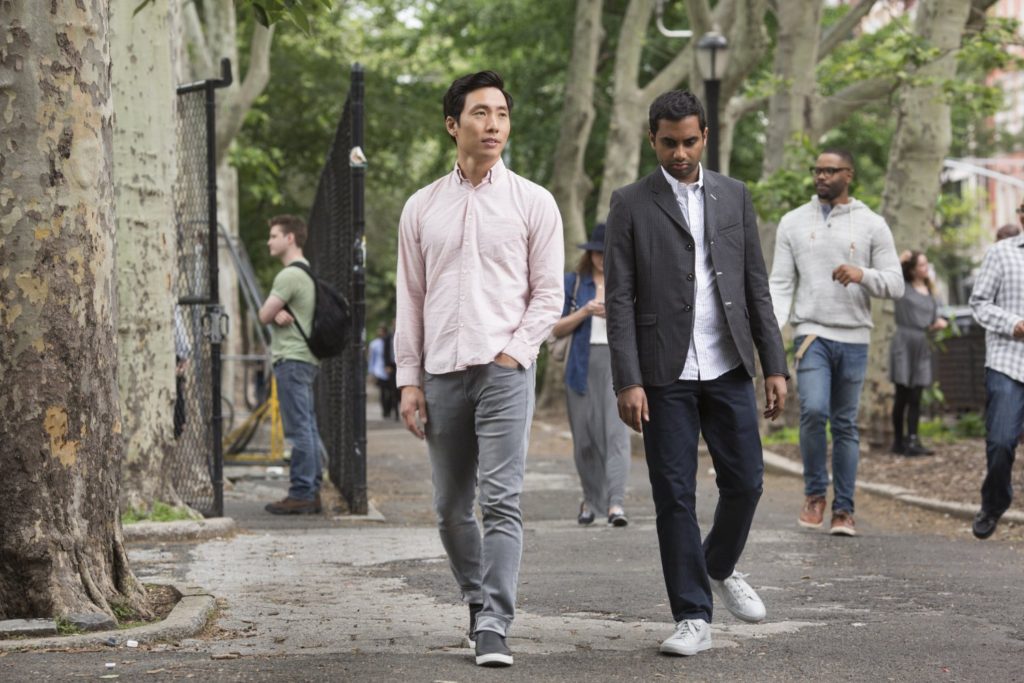
TrunkSpace: You also star in “Master of None,” which seems like a really important show in the grand scheme of things because it presents all of these characters of different ethnicity and backgrounds, strips away the stereotypes and just presents them as people. Do you think the series is going to help change the way that Hollywood represents people on screen?
Yu: It’s so funny working on both shows because Bob’s is a slow, lazy river… a perfume that slowly invaded the room. And you hear like, “Did somebody spray perfume?” It takes you 20 minutes to realize it’s there. “Master of None” came out and it was in the zeitgeist. It was in the moment. It was totally right now. It was the cool, hip, popular kid in the room. It just was everything opposite of Bob’s. Yet, such a joy in just the opposite way. I’m writing on Bob’s, I’m acting on “Master of None.” One’s in LA, the other one’s in New York. So I was having these really parallel, totally different experiences flying back and forth.
People of color, gay and lesbian people, and people who might feel less than represented over the past several decades or centuries or feel slightly marginalized, it’s interesting because it’s not new to us. I don’t walk around with chopsticks all the time. I’m just living my life. I think the best thing that Aziz and Alan did, the way that they penetrated or permeated that membrane into relevance, was to make it look really, really attractive.
When you think of “Master of None” in your reptilian brain, people are like, “I want to eat all of those episodes tonight. I want to go home and eat all of it tonight.” I think that’s really genius, because what they’re doing is like sushi in the 80s or yoga in the 90s. It’s this thing that might have been incredibly exotic to mainstream America, that’s just found a way into the culture because people were smart enough to say, “Hey, raw fish is delicious, but I’m not going to freak you out. And we’re not going to shame you and make you feel like you don’t understand Indian people or lesbian people or trans people. We’re going to make it all really fun. And you’re going to feel a part of it.” I think that when I take a step back and look at “Master of None” as a viewer and as a fan of Alan and Aziz, I’m actually really grateful. I realized that they were able to do a service for so many different communities and they had a great time doing it.


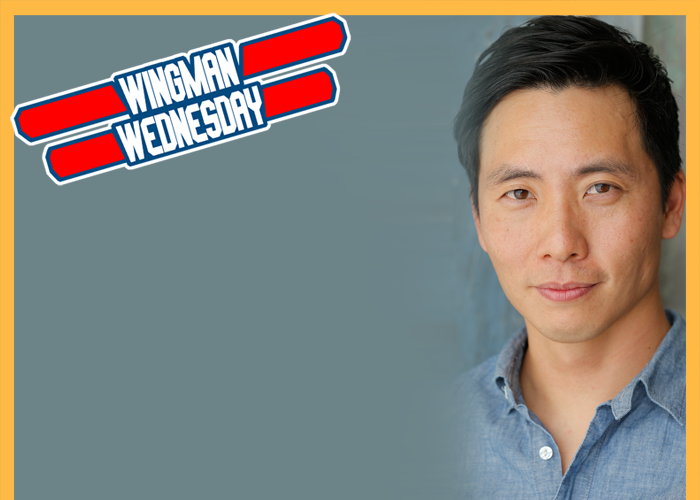
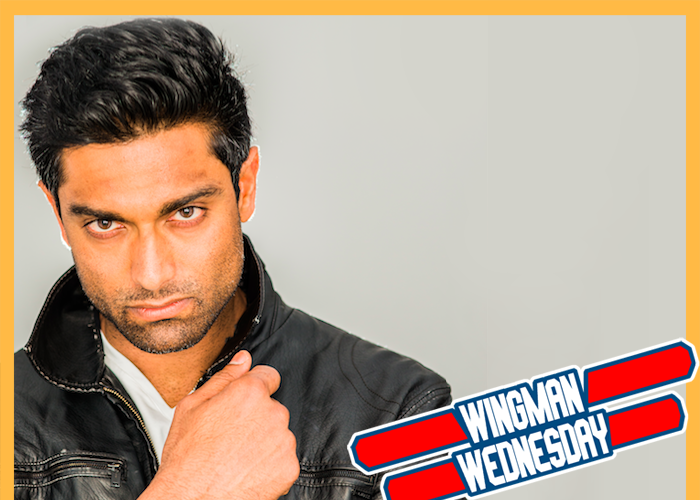
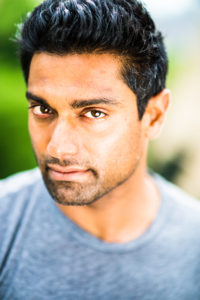
 back and here are his scenes.” And I was like, “Oh my God… this is happening!” (Laughter)
back and here are his scenes.” And I was like, “Oh my God… this is happening!” (Laughter)